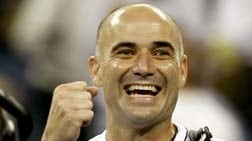
Jonathan Safran Foer has a son. He’s not the Son, I don’t think, although I might be forgiven for doing so. Because even though it is generally agreed that we are living in a child-centered moment, Eating Animals, the Everything Is Illuminated author’s somewhat reheated contribution to the recent spate of ruminations on flesh eating (verdict: don’t), is a singular entry in the annals of parenting literature—bypassing a now-commonplace obsession with one’s offspring to head straight to sanctification.
On the long road of parenting commentary, where genial postwar humorists Erma Bombeck and Jean Kerr fall back like abandoned Essos while the flag-festooned rest stops of Parenthood and Baby Boom flap wildly in the distance, two vital topics have always predominated: How Not to Kill Baby and Things Baby Did That Are Funny. (Toddlerspeak: the lisp that launched a thousand Facebook updates.) But a generation of overachievers married to the mighty circuits of our information exchange have birthed a debate on child curation of stunning speed and scope, from teeth-gnashing over C-sections to a Craigslist black market in fresh-drawn baby milk.
When a baby arrives, a man’s meager physical contribution is a spurt in a distant past—and once, you could trust the Don Drapers of the world to act like it.
The Mommy & Me Generation, who are lately asked to train their infants to themselves by sling and feed them only self-generated extrusions, can be forgiven if they occasionally treat breastfeeding as an act of religious solemnity. (One must find a way to cope with anything one is forced to do 37 times a day.) If the organic quality of what one uses to wipe a child’s ass and house its downy curve thereafter slides easily into a topic of substantive debate, so be it.

But fathers have no such excuse. When a baby arrives, a man’s meager physical contribution is a spurt in a distant past—and once, you could trust the Don Drapers of the world to act like it. The beer-drinking guard declined to wander out of the garage to renew intimacies until such time as real action was called for, like teaching offspring to ride a bike or balance a checkbook.
Not so for today’s fathers, who in an elegant chassé have slid from Metrosexual to Metoosexual, eschewing the masculine for simply putting a masculine spin on things.
Thus, behold a beaming Andre Agassi in People magazine sporting a “Daddy Rocks” necklace handcrafted by his toddler son. Witness The New York Times’ “Fathers Gain Respect From Experts (and Mothers)” admonishing mothers for hectoring eager fathers out of the nursery. Watch Michael Lewis and Neal Pollack abandon the bat caves of finance and rock journalism for ruminations on child-rearing, and believe, if a recent Facebook update is accurate, real-life dads take to calling Baby Bjorns “rigs.”
But Foer’s unhinged screed against the dangers of the modern meat-industrial complex takes “me too” fathering to a new level. Rest assured, little needs be said about the ostensible matter of the book itself, which is very much the sort of fruit you’d expect the marriage of an overwrought novelist, stacks of agriculture reports, and a few years of psychic mulch to bear.
It’s what prompted Foer’s reconsideration of his own eating that fascinates. Foer is the kind of adult for whom a pre-Huggies life was rudderless. Once he finds out he is going to be a father, “I began tidying up the house… I had my glasses adjusted.” Before becoming a father, the divergence between his thoughts and actions is laughable: Although he says he is a vegetarian, he sometimes eats meat. As his gifted son picks up nursing like a champ, he looms magisterial, the globo-historical import of what he consumes profound: “Seconds after being born, he was breastfeeding. I watched him with an awe that had no precedent in my life... Millions of years of evolution had wound the knowledge into him.”
There is nothing wrong with falling into wonderment at one’s own child. (It is contraindicated over the long term.) There’s also nothing wrong with being against the wholesale ripping of beaks off innocent chickens to keep Tyson Foods in business, an image Foer returns to frequently. Who, after all, is for a food system that, among other things, routinely releases a geyser of fecal matter into the air to spray neighboring crops? The problem is that Foer suddenly cares—and, by extension, so must we—because some day one micrometer of that shit might fall on the head of Jonathan Safran Foer’s son.

“Feeding my children is not like feeding myself,” Foer soberly informs us, lest we’ve misdirected our rapt attentions. “It matters more.”
And though Foer cannot breastfeed, he will overtake the laudable output of his wife by asserting his own dominance over their child’s subsequent diet. Armed with one masticating offspring, with barely concealed scorn he skewers Tyson Foods, which, as he makes clear, need not apply: “I am a new father, eager to learn as much as I can about the meat industry, in an effort to make informed decisions about what to feed my son,” he tells the company in a letter he tacks, Luther-like, to its proverbial door. “I assume you’ll appreciate my desire to see for myself where my son’s food comes from.”
But it is the poor child who bears the brunt of Foer’s impulses, since, though Foer seems under the impression it is his child’s health and the health of the world at large at stake, what really matters is his own narrative legacy. “Increasingly the food he eats is digested with the stories we tell,” Foer tells us, with slightly quease-inducing literalness. Once, as Foer tells it, he believed in his grandmother’s chicken more than he believed in God. “Around what lessons will my son’s cravings be formed?” he frets. His children, he laments, will never receive, from his grandmother, the “unique and most direct expression of her love, will perhaps never think of her as the greatest chef who ever lived.”
But they’re in luck: Foer has a memory already set in place for them! “Instead of turkey burgers my dad grilled,” Foer rhapsodizes, “my children will remember me burning veggie burgers in the backyard.” Say what you will about freezing breast milk so that formula never passes a child’s lips—it’s a far cry from pre-packaging wholesome memories so that a child never has trouble with the inferiority of his own.
It pains me to level a similar charge at Michael Chabon, whose parenting memoir Manhood for Amateurs is as close to the splendors of Kerr’s Penny Candy as any other is likely to come. But where Foer draws an arc from the primal chicken of his childhood to his own child’s as-yet-unformed humanity, Chabon is afflicted with the creative class’ version of suburban anomie: His mastery of nerd culture makes him unable to leave his children’s imaginations alone.
In “The Wilderness of Childhood,” Chabon cops to being a classic helicopter parent, lamenting the loss of the days of his own childhood, where he was free to gambol, unsupervised, in the woods behind his parents’ house: “Recently, my younger daughter learned to ride her bicycle. Her joy at her achievement was rapidly followed by a creeping sense of puzzlement at disappointment as it became clear there was nowhere for her to ride it—nowhere I was willing to let her go.” Following at a safe distance as his daughter rolls down deserted streets, Chabon finds himself incredulous at the world of play dates and indoor Chuck E. Cheese parties to which he has conscribed his own children: “And so our children have become cult objects to us, too precious to be risked.”
But it is Chabon’s tracking of his children’s internal life that truly seems intrusive. A fantasy-world drill sergeant, Chabon is impatient at his children’s ineptitude in the important work of exploring old houses and wandering around in a dreamy haze. “If they were sent to the countryside to avoid the Blitz,” Chabon says wearily, “my children might well have to be marched, under protest, to the room with the old wardrobe and shoved in among the coats.” He and wife Ayelet Waldman have, he quips, “free-range children,” chicklets who do not fly the coop of their stately summer home to wander into the leafy expanse, no matter how widely the parents leave open the door. They seem to know nothing of the delicate art of lying around doing nothing, and worst, the tree house the couple has built for their offspring—an al fresco womb—may be “insufficiently dank, gloomy, remote, mysterious.”
There is something amusing when a father’s sincere concern takes the form of worry that his son’s taste in gross-out toys is not gross enough. And yet, when said father makes his living wringing insights out of exactly such cultural flotsam, a child’s lack of creative agility might start to seem to everybody an embarrassing obstacle, like the inability to reach second base (exactly the type of judgment the creative class pooh-poohed into oblivion). Like Foer, Chabon wants only the best for his children. It’s just that the best bears a striking resemblance to the best for one Michael Chabon.
What Foer’s and Chabon’s baroque ministrations avoid is the one immutable fact of growing up: Your children, if you do a good job, will rarely think of you at all. (To say nothing of your veggie burgers.) “Your children’s childhoods as you watch them grow are always indexed to your own, visibly and invisibly,” Chabon writes, “their incidents and episodes, pleasures and calamities snarled with your own.” True for the parent, but not, one hopes, for the child, who deserves her own incidents and episodes, pleasures and calamities. “The shame of parenthood—which is a good shame—is that we want our children to be more whole than we are, to have satisfactory answers,” Foer writes. Really? I hate to end the suspense for Foer, but that kid over there—the one with many spoonfuls of mashed yam, despite millions of years of evolution, all over his face—is unlikely to add substantively to the universe’s quota of truly satisfactory answers. In fact, if he has a lick of sense, by the time his father gets around to badgering him, he’ll be out in the garage, having a beer.
Plus: Check out Book Beast, for more news on hot titles and authors and excerpts from the latest books.
Lizzie Skurnick is the author of Shelf Discovery, a memoir of teen reading. She lives in Jersey City.





